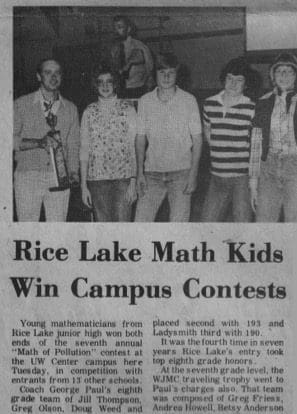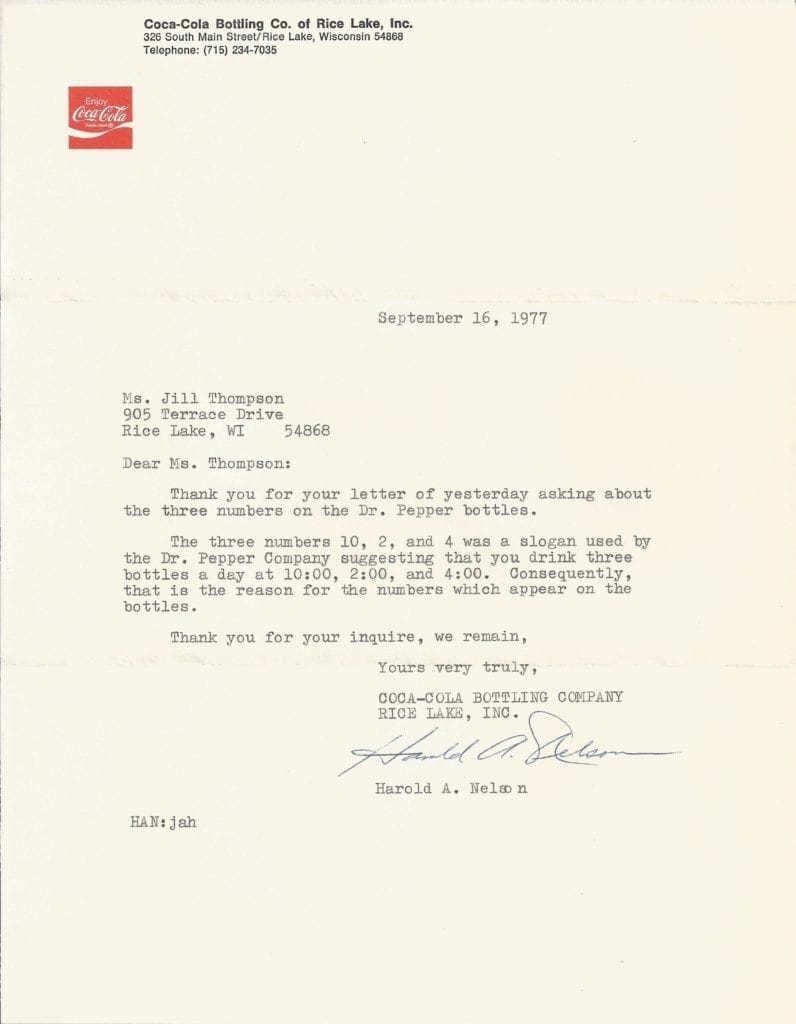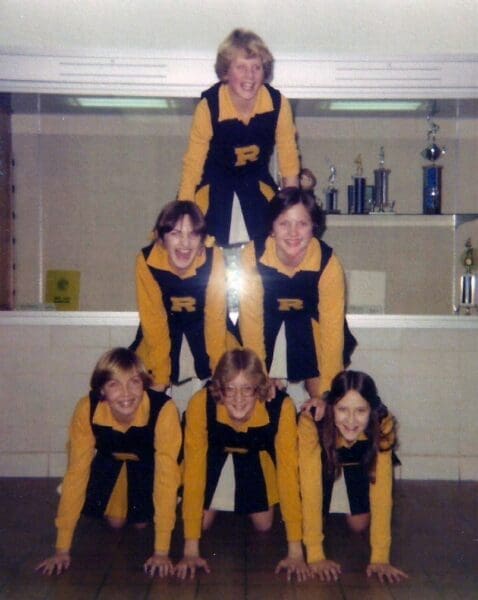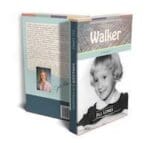Highlights from my years in middle school included an eighth grade “Math of Pollution” contest. Eighth graders in 13 schools were tested in order to select a team of kids who would compete in an event held at the Barron County campus. I made the cut. My math teacher, Mr. Paul, asked me, “Have you taken this test before?” I guess he didn’t think I had it in me. Then again, I didn’t know I did either. Our team took first place.

Interestingly, when my son Charlie was finishing second grade, his teacher remarked that she was surprised at how well he had done on the yearend standardized test; she had placed him in the slower math group in class. The next year, Charlie tested into TAG, the Talented and Gifted program. He’s an absolute whiz in math.
Acrostic Poem by Charles Sanders, circa 2002 (~age 9)
Cool in soccer.
Have a ton of Pokemon cards.
Agrees to go on roller coasters.
Runs very fast.
Likes soccer a lot!
Especially hates cheese.
Spectacular in math.
In high school, Charlie participated on the math team his freshman and sophomore years. Yes, that’s right, a group of kids would get up early on a Saturday morning to be driven an hour or more away so they could essentially take a math test together. I sometimes drove a carload of those kids and was happy to do it.
One day in 1977, I noticed some strange numbers on a Dr. Pepper bottle: 10, 2 and 4. I couldn’t puzzle out what they meant, and chances are I asked my mom or dad who probably told me we had a Coca-Cola bottling plant in Rice Lake and I should send them a letter and ask them. Which I did. A kindly man named Harold A. Nelson replied: “The three numbers 10, 2, and 4 was a slogan used by the Dr. Pepper Company suggesting that you drink three bottles a day at 10:00, 2:00, and 4:00. Consequently, that is the reason for the numbers which appear on the bottles.”

A few years prior, when I was in sixth grade, I had an eye tooth surgically removed through the roof of my mouth. It had never come in, seemingly due to the narrowness of my face and therefore lack of space, and was creating abscesses in my gum which I’d started noticing in grade school. The other option had been to wear braces for a few years to create a gap along my top teeth, hoping that, with luck, that tooth might drop down into it.
My mother drove me to Eau Claire for the surgery, making sure I was wearing a nice new dress so I would make a good impression. Afterwards, before heading back home, we made a stop at the fabric store. There are two things to note here. One, in that part of the world, driving an hour to Eau Claire was done maybe twice a year. (And with all those farms and fields in between, it’s one of the longest hour-long drives of your life.) And two, to my mother, that fabric store was like a kid’s candy shop.
So she left me, still woozy from the surgery, to nap in the car. But then I woke up and was in tremendous pain. Finally, I had to go inside and find her, and eventually we left the store to go get some pain medicine for me.
Later, in college, I would consider backtracking and getting braces to make a space for some kind of fake tooth. I have always been highly self-conscious about my lopsided grin, even to this day, and yet when I mentioned this idea to my friends, they all said, “Your teeth are crooked? Let me see.”
Only by pointing it out were others aware of it, making it hard to justify the effort and expense. When all was said and done, I just moved on.
I went on to write a few more fun poems in seventh grade, encouraged by my now-sober dad (at least for a time) who served up the pun for the punch line.
The Adventures of Willard P. Huggins
“All three of these poems were inspired by my father who thought of the morals and gave me a rough idea for the stories. But I invented the name and the type of character that he is.” —Jill Thompson, age 12
Willard P. Huggins | Story One (of Three)
Willard P. Huggins
Skipped school last Wednesday,
His excuse was quite simple
He fancied to play.
So early that morning
He rose with the sun,
To arrange and make plans
For his long day of fun.
Then at eight o’clock sharp
Out the door Willard ran
To put into action his
Number One plan.
He gathered some stones
Then raced down the street,
Till he reached Miss Gallumph’s house
(So tidy and neat.)
Miss Gallumph was the lady
Who stepped on his mouse,
And so for revenge
He threw rocks at her house.
When the job was all done
And the task was complete,
Willard ran on down to
Mullberry Street.
This was the street
Where they built the new zoo,
So Willard got ready
For plan Number Two.
He snuck past the gate
Without paying his fee,
For Willard was clever,
As clever could be.
But while passing the pig pen
His great plan did fail,
For he was rudely disturbed
From uncurling a pig’s tail.
For before Willard ‘s eyes
Stood the strangest type thing,
An overgrown apple
With feet made of springs!
It said, with a strange
And a low, grumbling voice,
“Kick all male doctors.
You haven’t a choice.”
Willard was scared
So he fled from the zoo,
Till he came to the street
Which was known as Patoo.
But there by the hydrant
Stood that apple again,
“You must kick the doctors,
But only the men.”
He became very frightened
Over what must be done.
He must kick the male doctors,
Yes kick everyone.
So he figured his plans,
Which he’d start right away.
His plan was to kick
One male doctor a day.
His plans were quite tricky
But I can’t tell you.
For you’ll tell the police
And he’ll get kicked, too.
But the job was soon done
And Willard was free,
From the overgrown apple
Whom he dreaded to see.
And never again
Did Willard skip school,
But you must remember
This important rule.
And follow this moral,
From it don’t stray:
A doctor a day
Keeps the apple away!
We middle-schoolers also did the usual things, like roller-skating on Friday nights at Rainbow Gardens. When you turned down the lights and lit up that spinning glitter ball, the place turned magical. Apparently, in the light of day, the place was a total heap and it eventually closed because it was condemned.
My friend Melinda had a boyfriend even though her father forbade it saying she was too young to date, so they made out in the coat closet at the rink. Pete would have been well into high school by then and he wanted a pair of roller skates of his own. All the cool kids owned their own skates. My mother went so far as to give him her old skates to wear, but since they were white, he took black shoe polish to them. That didn’t turn out so well, either for the skates or for my brother.
A prime accomplishment for me in those years was making the cheerleading squad in eighth grade, having been unsuccessful the year before. I wanted it so badly, and when they called my name, another girl named Jill Demers, who had been on the squad the year before, squealed and jumped into the air thinking they had called her name. They hadn’t yet, and I knew I had heard right. But that sort of stole my moment.

The eighth-grade cheerleaders also served as flashers for the high school gymnastics meets, which were held on Tuesday nights. We held up the signs that showed the audience the score for each event. The signs had two large changeable numbers, and when the score was given to us, we flashed it around so everyone could see it.
I was assigned to the vault the night when one of our gymnasts made history. We had remarkably good gymnastics teams, but on this year, we had one athlete who was exceptional. And when she stuck that landing on a very difficult vault, the whole place exploded. When I was shown the score, I didn’t know what to do. The score sign had two slots, with a decimal in between. It didn’t matter. When I held up a 1.0, the whole place knew exactly what that meant. Janine had scored a 10.
In eighth grade, I also played a key role in assembling the middle school class yearbook, due to my having study hall the same time the teacher-in-charge had her free period. Every day, Mrs. Jonacheck and I would meet in her classroom, selecting candid photos, making up clever captions—that should probably be “clever” in quotes—and organizing the individual class pictures. I must say, I was quite proud of that accomplishment, an early inkling of a life that would be spent working largely in communications.
Next Chapter
Return to Walker Contents



